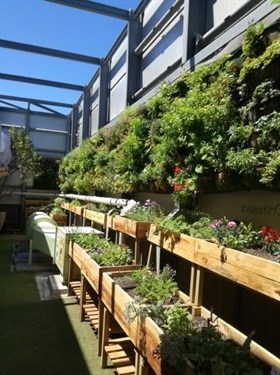
Top stories






More news


Marketing & Media
Ads are coming to AI. Does that really have to be such a bad thing?













"The Mother City is well-known as a responsible tourism world leader, but the hospitality industry needs to have sustainability at the centre of their business models."
The Westin Cape Town, situated in the CTICC precinct in the Foreshore, for example maintains sustainable tourism through its two flagship initiatives: a rooftop garden and a reverse osmosis plant.

The garden, situated on the rooftop of the hotel’s 19th floor, provides providing organic herbs and edible flowers for guests.
"The rooftop garden serves as a great eco-friendly resource in the growing methods we practice, and provides nutritionally dense produce that we can control from a safety and quality perspective, which is a big part of our hotel wellness and responsible tourism movement."
The garden operates in a fully-recyclable capacity, whereby an automated drip irrigation system collects excess water to be recycled through a pump. The rooftop also boasts a small scale wormery where kitchen food waste is fed to the worms and the fertiliser produced is used to nourish the plants.
The rooftop garden is not the only way the hotel is saving water.
The hotel’s reverse osmosis plant is expected to save the establishment millions of litres of water a year and significantly reduce its dependency on municipal water.
As the water crisis deepened late in 2016, the hotel took steps, along with its immediate water-saving initiatives, to implement a long-term water-saving plan which involved building the reverse osmosis plant.

At present, owing to the Westin being built on land reclaimed from the sea, the hotel uses five rotating pumps to extract around 1.2 million litres of seawater from its basement level per day. This seawater will now be re-routed into the plant, situated in The Westin’s secure basement area, to produce around 441,000 litres of clean, purified water per day. As a result, the establishment is expected to save over 100 million litres of municipal water a year.
"It’s important to note that even though we’re extracting 1.2 million litres of seawater on average from the ocean per day, after the desalination process, the total litres of clean, usable water extracted will be significantly less," says Meyer.